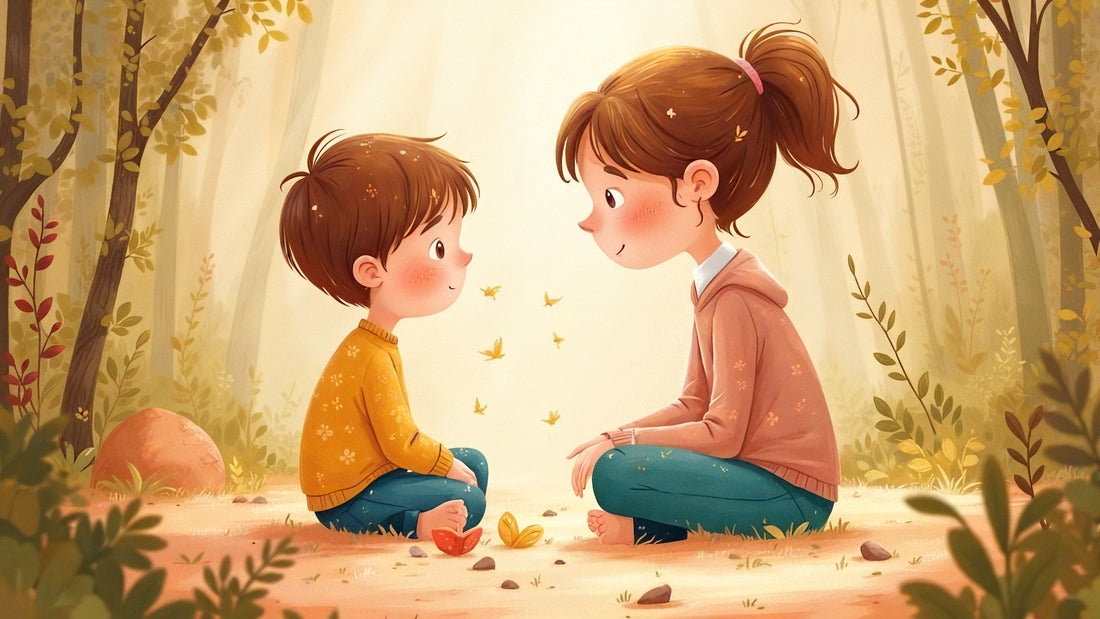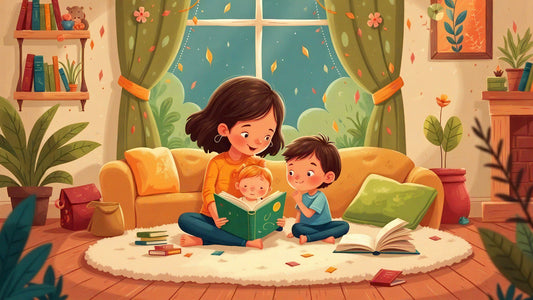
The Art of Listening: Building Better Communication With Your Little Ones
As parents, we often find ourselves repeating phrases like "Are you listening?" or "Please pay attention!" These moments can be frustrating for both parent and child, but understanding why children struggle with listening can transform these challenges into opportunities for connection and growth.
Understanding the Child's Mind
Young children aren't deliberately ignoring us - their minds process information differently than adults. When a child is deeply engaged in play, they genuinely might not hear us. Their absorption in the present moment is so complete that the outside world fades away. This intense focus, while challenging for parents, is actually a vital part of childhood development and learning.
Children also need more time to process and switch between activities than adults do. What we perceive as not listening might actually be their minds working to transition from one task to another. Add to this the fact that young children are still developing the ability to filter information and handle multiple inputs, and it's easy to see why listening can be such a challenge.

Creating a Listening-Friendly Environment
The key to improving listening skills lies not in demanding attention but in creating an environment where listening comes naturally. Getting down to a child's physical level, making eye contact, and using gentle touch to gain attention can be far more effective than calling out from across the room. When we match our energy to our children's before trying to redirect them, we're more likely to succeed in gaining their attention.
Making Listening Fun
Turning listening into a game can transform it from a chore into a delight. Simple activities like "Freeze Dance" or whispering games not only build listening skills but create joyful moments of connection. When we incorporate listening practice into everyday activities - perhaps by taking turns being the listener, or playing "Simon Says" during routine tasks - we're teaching vital skills while maintaining the playful spirit that makes childhood special.

The Power of Natural Consequences
Sometimes, as our story shows, natural consequences can be the most effective teachers. Missing out on something exciting because we weren't listening makes a lasting impression. The key is to help children connect these outcomes to their listening choices, without shame or blame. When we approach these moments with empathy and understanding, they become valuable learning experiences rather than punishments.
Building Skills Over Time
Listening is a skill that develops gradually, and celebrating small improvements is crucial. When we acknowledge that listening can be challenging and model good listening ourselves, we show children that this is a skill worth developing. Creating quiet moments in daily routines provides opportunities to practice listening in a low-pressure environment.
The Individual Nature of Learning
Every child develops differently, and what works for one might not work for another. Age plays a crucial role in listening ability, and some environments naturally make listening more challenging than others. Understanding these factors helps us set realistic expectations and choose appropriate strategies for each situation.

Practical Applications at Home
Simple daily activities can become opportunities for listening practice. Cooking together, for instance, naturally requires following instructions and paying attention to detail. Craft projects that involve multiple steps help develop sequential listening skills. Even everyday conversations can become listening exercises when we make a point of truly engaging with our children's responses.
When to Seek Additional Support
While most listening challenges are developmental, there are times when professional support might be helpful. If listening difficulties persist across all settings, or if you notice potential hearing problems, consulting with healthcare providers can provide valuable insights and strategies.
The Heart of the Matter
The most important thing to remember is that listening isn't just about following rules - it's about connection. Like Freddie discovers in our story, being present and attentive helps us catch life's magical moments. When we approach listening with patience, creativity, and understanding, we help our children develop not just a crucial skill, but a deeper appreciation for the world around them.
As parents, our role isn't to demand perfect listening but to guide our children toward understanding its value. Through gentle encouragement, consistent practice, and loving support, we can help our little ones develop the listening skills they'll need throughout life, while keeping the joy and wonder in our daily interactions.
Remember, every small step toward better listening is a victory worth celebrating. By focusing on progress rather than perfection, we create an environment where both parents and children can thrive in their communication journey together.



